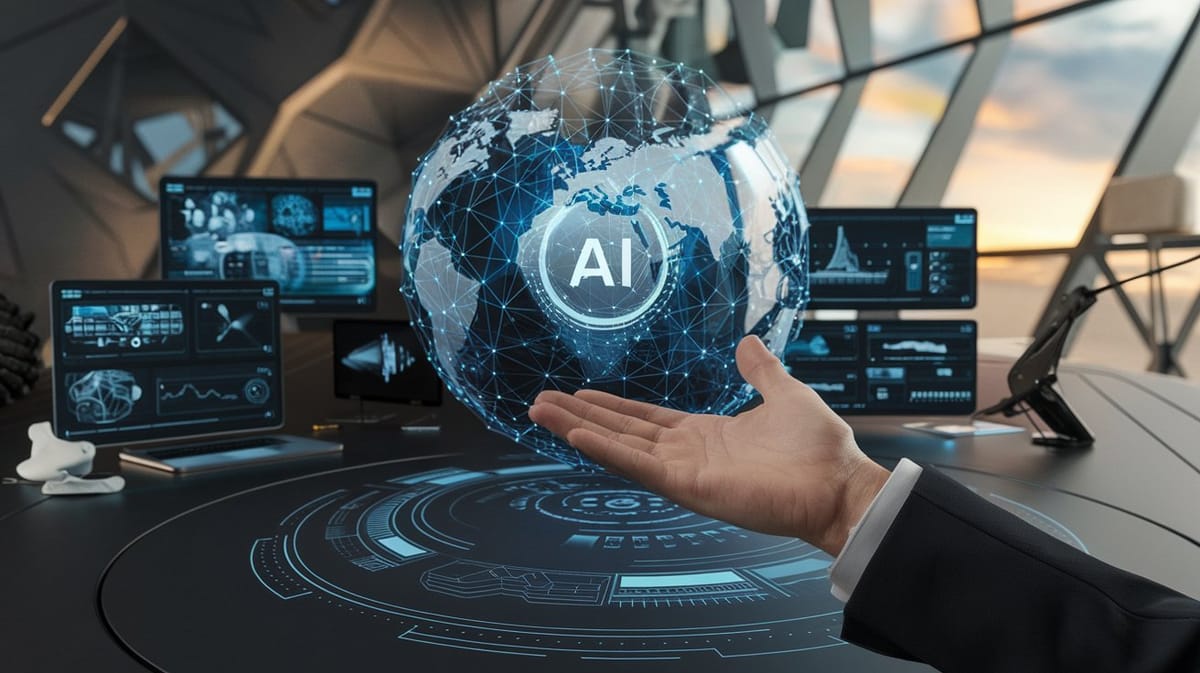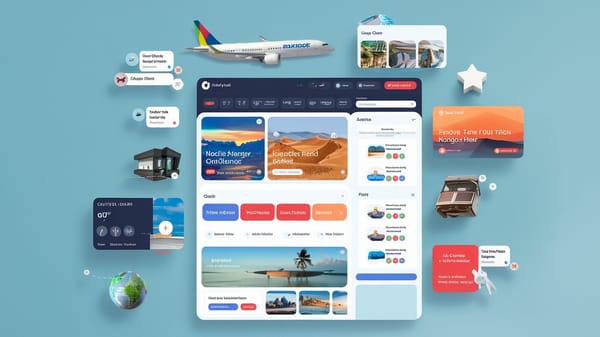Project Management: AI Tools for Project Success

In the rapidly evolving landscape of project management, artificial intelligence (AI) is emerging as a transformative force, reshaping how projects are planned, executed, and delivered. As organizations strive for greater efficiency and effectiveness, AI tools are becoming indispensable in enhancing project success. This report delves into the integration of AI in project management, exploring its potential to revolutionize traditional methodologies and tools.
The potential of AI in project management is vast, with experts predicting that AI could eventually assume roles traditionally held by human project managers. By automating complex tasks and providing valuable insights, AI can assist in decision-making, resource allocation, and risk mitigation. Studies have shown that AI can increase productivity by up to 40% and reduce error rates by 50%, according to Accenture and McKinsey.
Moreover, AI tools are evolving to incorporate emotional intelligence, enabling them to assess team dynamics and monitor stress levels, thereby fostering a healthier work environment. This evolution is crucial as AI becomes more adept at managing not just tasks but also people, creating more harmonious and efficient project teams (Project Management.com).
The integration of AI in project management is not without its challenges. Concerns about data privacy, ethical considerations, and the potential for job displacement must be addressed. However, the benefits of AI, such as improved decision-making and enhanced team collaboration, are significant. As organizations prepare for this technological shift, they must focus on gathering and cleaning project data, training their workforce, and dedicating resources to drive this transformation.
You can also visit Oncely.com to find more Top Trending AI Tools. Oncely partners with software developers and companies to present exclusive deals on their products. One unique aspect of Oncely is its “Lifetime Access” feature, where customers can purchase a product once and gain ongoing access to it without any recurring fees. Oncely also provides a 60-day money-back guarantee on most purchases, allowing customers to try out the products and services risk-free.
Oncely are hunting for the most fantastic AI & Software lifetime deals like the ones below or their alternatives:

Table of Contents
- Benefits of AI in Project Management
- Automation of Routine Tasks
- Enhanced Decision-Making Capabilities
- Improved Resource Allocation and Prioritization
- Increased Accuracy in Forecasting
- Augmented Collaboration and Communication
- Challenges and Concerns of AI Implementation in Project Management
- Data Privacy and Security Concerns
- Ethical Implications and Bias
- Integration Complexities
- Cost and Resource Allocation
- Training and Skill Development
- Balancing AI and Human Input
- Resistance to Change
- Conclusion
- Future Trends in AI for Project Management
- AI-Driven Predictive Analytics
- Intelligent Automation and Process Optimization
- Enhanced Collaboration through AI-Powered Communication Tools
- AI-Enhanced Risk Management
- Personalization and Customization of Project Management Tools
- AI-Driven Decision Support Systems
- Integration of AI with IoT for Real-Time Project Monitoring
- Ethical AI and Responsible AI Practices
Benefits of AI in Project Management
Automation of Routine Tasks
Artificial Intelligence (AI) has significantly transformed project management by automating routine and repetitive tasks, thereby enhancing efficiency and allowing project managers to focus on more strategic activities. AI tools can handle tasks such as scheduling, data entry, and status updates, which traditionally consumed a considerable amount of time. According to a survey by the Project Management Institute (PMI), AI is expected to automate minimally complex tasks, which can lead to increased efficiency in project execution (Champlain College). This automation not only reduces the likelihood of human error but also ensures that project managers can allocate their time and resources to more critical decision-making processes.
Enhanced Decision-Making Capabilities
AI enhances decision-making capabilities by providing project managers with predictive analytics and data-driven insights. AI systems can analyze vast amounts of data from past projects to identify patterns and predict future outcomes. This capability is particularly beneficial in risk management and forecasting, where AI can simulate various scenarios to determine the best course of action. AI-driven simulations offer a low-risk environment for evaluating potential decisions, helping project managers avoid negative outcomes and improve their decision-making skills (Champlain College). By leveraging AI, project managers can make more informed decisions, ultimately leading to improved project outcomes.
Improved Resource Allocation and Prioritization
Resource allocation is a critical aspect of project management, and AI tools can significantly enhance this process. AI can analyze project requirements and available resources to optimize allocation, ensuring that resources are used efficiently and effectively. This capability is particularly important in projects with limited budgets, where maximizing the impact of every dollar is crucial. AI expert Tom Davenport highlights that AI-powered data analysis can predict project costs and timelines with a higher degree of confidence, helping project managers overcome previous deficits in budget forecasting (Champlain College). By improving resource allocation, AI helps project managers prioritize tasks and allocate resources where they are most needed, leading to more successful project outcomes.
Increased Accuracy in Forecasting
AI tools provide project managers with increased accuracy in forecasting project timelines and budgets. By analyzing historical data and identifying trends, AI can offer more precise predictions about project durations and costs. This capability is essential for project managers who need to plan and allocate resources effectively. AI's ability to provide accurate forecasts helps project managers set realistic expectations and avoid common pitfalls associated with inaccurate predictions. As a result, projects are more likely to be completed on time and within budget, enhancing overall project success (Champlain College).
Augmented Collaboration and Communication
AI tools facilitate improved collaboration and communication among project teams. By automating communication processes and providing real-time updates, AI ensures that all team members are informed and aligned with project goals. AI-powered platforms can also analyze team interactions and suggest ways to enhance collaboration, such as identifying potential communication bottlenecks or recommending team-building activities. This capability is particularly valuable in remote or distributed teams, where effective communication is crucial for project success. By enhancing collaboration and communication, AI helps project managers build cohesive teams that work together more effectively to achieve project objectives (Champlain College).
In summary, AI offers numerous benefits in project management, from automating routine tasks to enhancing decision-making capabilities and improving resource allocation. By leveraging AI tools, project managers can increase efficiency, accuracy, and collaboration, ultimately leading to more successful project outcomes. As AI continues to evolve, its role in project management is expected to expand, offering even more opportunities for project managers to enhance their performance and achieve project success.
Challenges and Concerns of AI Implementation in Project Management
Data Privacy and Security Concerns
One of the foremost challenges in implementing AI in project management is ensuring data privacy and security. AI systems often require access to vast amounts of sensitive data, including personal employee information and confidential project details. This raises significant concerns about data breaches and the ethical handling of personal and corporate data. Ensuring robust security protocols is not just a technical necessity but a fundamental responsibility. Secure AI systems are essential to protect against potential cyber threats and maintain trust in AI-driven processes (Psycray).
Ethical Implications and Bias
AI systems in project management can inadvertently perpetuate biases present in the data they are trained on. This can lead to unfair or biased decision-making processes, which can affect project outcomes and stakeholder trust. Ethical considerations in algorithm design are crucial to mitigate these risks. Ensuring that AI systems are transparent and that their decision-making processes can be audited is essential to address these ethical concerns (Agile Business).
Integration Complexities
Integrating AI tools with existing project management systems and workflows can be complex and challenging. Many organizations face difficulties in achieving seamless integration due to technological limitations and the need for system interoperability. This challenge is compounded by the need for technical staff with specialized skills and experience to manage these integrations effectively. Organizations must carefully plan and execute integration strategies to ensure that AI tools complement existing processes without causing disruptions (Atlassian).
Cost and Resource Allocation
The implementation of AI in project management can be cost-prohibitive, especially for small to medium-sized enterprises. The high costs associated with AI tools, infrastructure, and skilled personnel can be a significant barrier to adoption. Additionally, organizations must allocate resources effectively to support AI initiatives, which can strain existing budgets and resources. Balancing the costs and benefits of AI implementation is crucial for organizations to justify the investment (ICAgile).
Training and Skill Development
The successful adoption of AI in project management requires comprehensive training and skill development for project managers and their teams. Understanding AI capabilities and limitations, as well as adapting to new AI-driven workflows, is essential. Training ensures that the workforce is competent in using AI systems and can maximize their potential in project management. This involves not only technical training but also fostering a culture of continuous learning and adaptation to new technologies (Psycray).
Balancing AI and Human Input
While AI can significantly enhance decision-making and efficiency, maintaining a balance between AI-driven insights and human expertise is crucial. Effective collaboration between AI systems and human judgment ensures a more holistic approach to project management. This balance helps avoid over-reliance on AI decisions, which could miss the nuances that human experience brings to complex projects. Organizations must foster an environment where AI and human input complement each other to achieve optimal project outcomes (Project Management).
Resistance to Change
Resistance to change is a common challenge when implementing AI in project management. Employees may fear job displacement or be skeptical about the benefits of AI, leading to resistance in adopting new tools and processes. Overcoming this resistance requires clear communication about the benefits of AI, as well as involving employees in the implementation process to ensure buy-in and acceptance. Change management strategies are essential to address these concerns and facilitate a smooth transition to AI-driven project management (Atlassian).
Conclusion
The implementation of AI in project management presents a range of challenges and concerns that organizations must navigate carefully. From data privacy and security to ethical implications and integration complexities, these challenges require strategic planning and execution. By addressing these concerns, organizations can harness the full potential of AI to enhance project management processes and achieve greater success in their projects.
Future Trends in AI for Project Management
AI-Driven Predictive Analytics
Predictive analytics is becoming a cornerstone in project management, leveraging AI to forecast project outcomes with greater accuracy. AI algorithms analyze historical data to predict future project risks, timelines, and resource needs. According to a report by Gartner, the AI software market is expected to reach $126 billion by 2025, with a significant portion dedicated to predictive analytics tools. These tools enable project managers to anticipate potential issues and adjust strategies proactively, reducing the likelihood of project overruns and failures.
Intelligent Automation and Process Optimization
AI is set to revolutionize process optimization through intelligent automation. By 2025, it is estimated that AI will automate up to 80% of routine project management tasks, such as scheduling, reporting, and resource allocation (McKinsey & Company). This shift allows project managers to focus on strategic decision-making and innovation. AI tools can dynamically adjust project plans in real-time, optimizing workflows and improving efficiency. For instance, AI-driven platforms can automatically reassign tasks based on team availability and project priorities, ensuring optimal resource utilization.
Enhanced Collaboration through AI-Powered Communication Tools
AI is enhancing collaboration in project management by improving communication tools. AI-powered chatbots and virtual assistants facilitate seamless communication among team members, regardless of geographical location. These tools can provide instant updates, answer queries, and even schedule meetings, reducing the time spent on administrative tasks. According to a study by Forrester, companies using AI-enhanced communication tools reported a 30% increase in team productivity. Furthermore, AI can analyze communication patterns to identify potential bottlenecks and suggest improvements, fostering a more collaborative and efficient work environment.
AI-Enhanced Risk Management
Risk management is a critical aspect of project management, and AI is playing an increasingly vital role in this area. AI systems can analyze vast amounts of data to identify potential risks and suggest mitigation strategies. These systems use machine learning algorithms to learn from past projects, improving their risk assessment capabilities over time. According to PwC, AI-driven risk management tools can reduce project risk by up to 40%. By providing real-time risk assessments, AI enables project managers to make informed decisions and implement effective risk mitigation strategies.
Personalization and Customization of Project Management Tools
AI is driving the personalization and customization of project management tools, tailoring them to meet the specific needs of different projects and teams. AI algorithms can analyze user behavior and preferences to customize dashboards, reports, and notifications, enhancing user experience and productivity. A survey by Deloitte found that 60% of organizations using AI in project management reported improved user satisfaction due to personalized tools. This trend is expected to grow as AI technologies become more sophisticated, offering even greater levels of customization and adaptability.
AI-Driven Decision Support Systems
AI-driven decision support systems are transforming how project managers make decisions. These systems provide data-driven insights and recommendations, helping managers choose the best course of action. By analyzing large datasets, AI can identify patterns and trends that may not be immediately apparent to human analysts. According to IDC, organizations using AI-driven decision support systems have seen a 25% improvement in decision-making speed and accuracy. These systems are particularly valuable in complex projects where multiple variables must be considered, enabling managers to make informed decisions quickly and confidently.
Integration of AI with IoT for Real-Time Project Monitoring
The integration of AI with the Internet of Things (IoT) is enabling real-time project monitoring and management. IoT devices collect data from various project sites, which AI systems analyze to provide real-time insights into project progress and performance. This integration allows project managers to monitor key performance indicators (KPIs) and make data-driven decisions on the fly. According to a report by Accenture, the combination of AI and IoT can improve project efficiency by up to 30%. This trend is particularly beneficial in industries such as construction and manufacturing, where real-time monitoring is crucial for project success.
Ethical AI and Responsible AI Practices
As AI becomes more prevalent in project management, there is a growing emphasis on ethical AI and responsible AI practices. Organizations are increasingly aware of the potential biases and ethical implications of AI systems. To address these concerns, companies are implementing guidelines and frameworks to ensure AI is used responsibly and ethically. According to a survey by Capgemini, 70% of organizations are actively working on developing ethical AI practices. This trend highlights the importance of transparency, accountability, and fairness in AI applications, ensuring that AI tools are used to enhance project management without compromising ethical standards.





